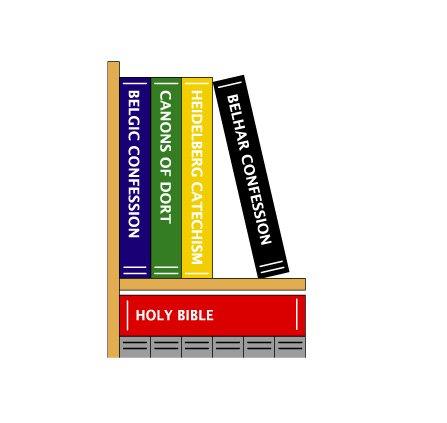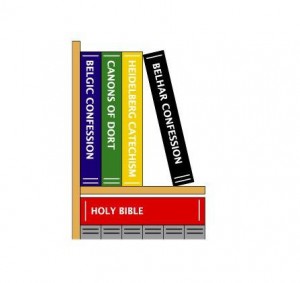A letter from South Africa – by Piet Naude
Dear sisters and brothers in the Presbyterian Church (USA),
1. It is with great excitement and joy that we heard that you are busy with the process of studying and reflecting on the Confession of Belhar. We pray that you will listen to the voice of the Holy Spirit who proceeded from the Father and the Son to lead us in the truth – the truth of the gospel for every age.
2. As you know, confessions do not “happen” very frequently. In our case – regarding the family of Reformed churches in South Africa – the last time an official confession was adopted, was way back with the Synod of Dordt in 1618-1619. As you also know, the Reformed tradition is the only one that makes official confessions and continued new confessions possible. Our Catholic, Lutheran, Orthodox and Pentecostalist co-believers can read Belhar and concur with its content. But is the only the small Reformed tree of the church that actually adopts a new confession as basis for teaching and liturgy in the church. You are therefore very special, and the expectations of your deliberations are very, very high.
3. There is another dimension to your reflection on Belhar – the youngest and only African confession of the Reformed tradition. (Let me remind you that the Accra Declaration is no true confession). We are used to be on the margins of the world. Africa is seen as a “dark” continent of corruption, war, tribal genocide, HIV/AIDS and under-development. Nothing good comes for here – except a few extra-ordinary peacemakers like Nelson Mandela and Desmond Tutu. The Belhar confession is in itself a sign of God’s enormous grace to use the unwise and the weak to be carriers of the gospel of Jesus Christ. What good can come from Nazareth? Can a king be born in a stable? Can a traitor like Peter become a star witness to the gospel? Yes, Belhar is the story of God turning the tables of our social norms around and confirming the faith of the weak and the marginalised. If we look to you – the strong, the centre, the developed, the leaders – our expectations are high that you will hear the Word of the Lord as spoken in weakness and from the margins. Or will you have ears and not hear; have eyes and not see?
4. Yes, we know that it is very, very difficult to fully accept a confession made in one context under specific circumstances into another, altogether different context. What has Belhar to do with Washington, New York, Pellah, and Chicago? But let me remind you that we have done so in history quite a few times. Let us start with Scriptures – written in Ancient Near Eastern and Mediterranean cultures in Hebrew, Aramaic and Greek – we however read and interpret and appropriate the Bible in every culture of the globe. The same goes for the “strange” creeds of the early church: Nicea, Athanasius, and the Apostolicum. And the confessions of the Reformation in Europe in the 16th century… Belhar is indeed highly context-bound, but – because it testifies to the Word of the Lord – it is at the same time global and ecumenical. Hear the Word of the Lord!
5. It is with ambiguity that we read about your sexual orientation debates in connection with Belhar. On the one hand, we have to respect your interpretative horizon. If sexual orientation is what God has put on your agenda now, we understand that you will read Belhar with those lenses. We are having some of the same debates right here. And it is good, because we can read texts further than their original intention. On the other hand, such one-dimensional hermeneutics can and do destroy the richness of the original text. One can so easily be blinded by an “agenda” that you miss the basic messages about unity, reconciliation and justice that might include, but at the same time go far beyond issues of sexual orientation. I remind you of the accompanying letter that reads: “We plead, therefore, that this confession should not be misused by anyone with ulterior motives also that it should not be resisted to serve such motives. Our earnest desire is to lay no false stumbling blocks in the way but to point to the true stumbling block, Jesus Christ, the rock.”
6. No one can be forced by the human power of rational persuasion or eloquent explanations to confess. Confessing is an act prompted by the Holy Spirit. It is the force of the gospel itself that leads one – mostly against one’s will – to confess. The Holy Spirit – we know – works through the Word of God. Quite a few churches have already seen and heard and judged Belhar as the Word of God, as witnessing to the same apostolic faith handed down through the ages. That is all that we from afar can stand on and hope for. The gospel is a power of God and God’s Word never returns empty, but fulfils that which God has sent it for. You may even say no to Belhar now, but we hope that later you will be persuaded to join the choir of this specific confessing church around the world.
7. May the fellowship of the Holy Spirit and the grace of our Lord, Jesus Christ, be with you.
Your African brother in the faith,
Piet Naude



Greetings in Christ to Piet Naude:
We clearly differ in our estimation of Accra, which you call, “no true confession.” I would say that the World Alliance of Reformed Churches was not in a position to claim it as a confession, and some would not have supported it if it were to have been so designated. At the same time, I find it to say a good number of true things, naming some ideological considerations that have perhaps only grown in power since 2004, even through the economic crisis. I would also be interested in your view of the Palestinian Kairos document, which draws much from the South African situation and steadfastness of your churches.
Chris Iosso
My sympathies are with Chris Iosso on this, but if Accra does not become a “confession” I suspect that we may see something emerge that will be more “wholistic” and perhaps as a response to the Millennium Development Goals….
Hi Chris and Rodney, My casual reference to Accra is only based on the technical fact that it is not a confession like Belhar. It has NO bearing on the great importance of Accra as a witness to economic and ecological justice, and it should be promoted, discussed and analysed in churches around the world! Thanks for tanking time to read my letter! Piet
Dear Piet Naude,
Shame on you for writing this, “We are used to be on the margins of the world. Africa is seen as a “dark” continent of corruption, war, tribal genocide, HIV/AIDS and under-development. Nothing good comes for here – except a few extra-ordinary peacemakers like Nelson Mandela and Desmond Tutu. The Belhar confession is in itself a sign of God’s enormous grace to use the unwise and the weak to be carriers of the gospel of Jesus Christ. What good can come from Nazareth? Can a king be born in a stable? Can a traitor like Peter become a star witness to the gospel?”
Africa possesses many of the great martyrs of the Church. In Uganda many young men, Christians, were martyred because they would not have sex with a king. During the time of Idi Omen many Christians were killed. In the Sudan many martyrs have given their lives for Jesus Christ. Jesus Christ honors his saints who give their lives for him. Africa is the shining jewel of Christ. Her church is much stronger and truer than the church of the United States which wants to cave into the world and adopt their sexual practices. And Belhar will help them do it. It was good for the church in South Africa but it is not good for the Church in the United States.
As far as the Accra Confession goes you were right the first time, it is not a confession. It does not confess Christ, and although it does name some problems about the needy and oppressed who we must as Christians help, it gives only one solution which is basically socialism. But there are many other solutions for Christians.
Anyway hold up your continent, so many people there love Jesus Christ.
Whether one likes it or not, the sexuality debate is on the front burner of the Presbyterian Church (USA). In fact, we are voting on Belhar even as we are debating whether to cut ourselves off from the historical moral teachings and practice of the Christian Church through the ages. In addition to this, we are debating a new constitution that will have powers in it to force acceptance of homosexuality on every congregation and every pastor, and we have a church administration in place that in many cases will do just that. We are voting on Belhar in that context.
Alan Boesak himself has argued from Belhar in support of homosexuality. Thankfully, the Uniting Reformed Church in S.A. has not bought into that (and hopefully never will). That Boesak himself some time back violated the principle of fidelity and chastity does not make his case look any better to those of us in the USA fighting hard to maintain biblical moral teachings in the church.
Plainly put, Belhar would be used in our American setting to impose homosexuality on Presbyterian congregations and pastors. This will do more to cut us off from our brothers and sisters throughout Africa than adopting Belhar would ever be able to repair. For years now “contextual” theology has been the byword in many ecumenical settings (it certainly was when my wife and I were students at the Ecumenical Institute at Bossey). In our American “context”, like it nor, Belhar has been made to carry dangerous freight.
bet365
Very nice post, cheers.
I have bookmarked your great site.